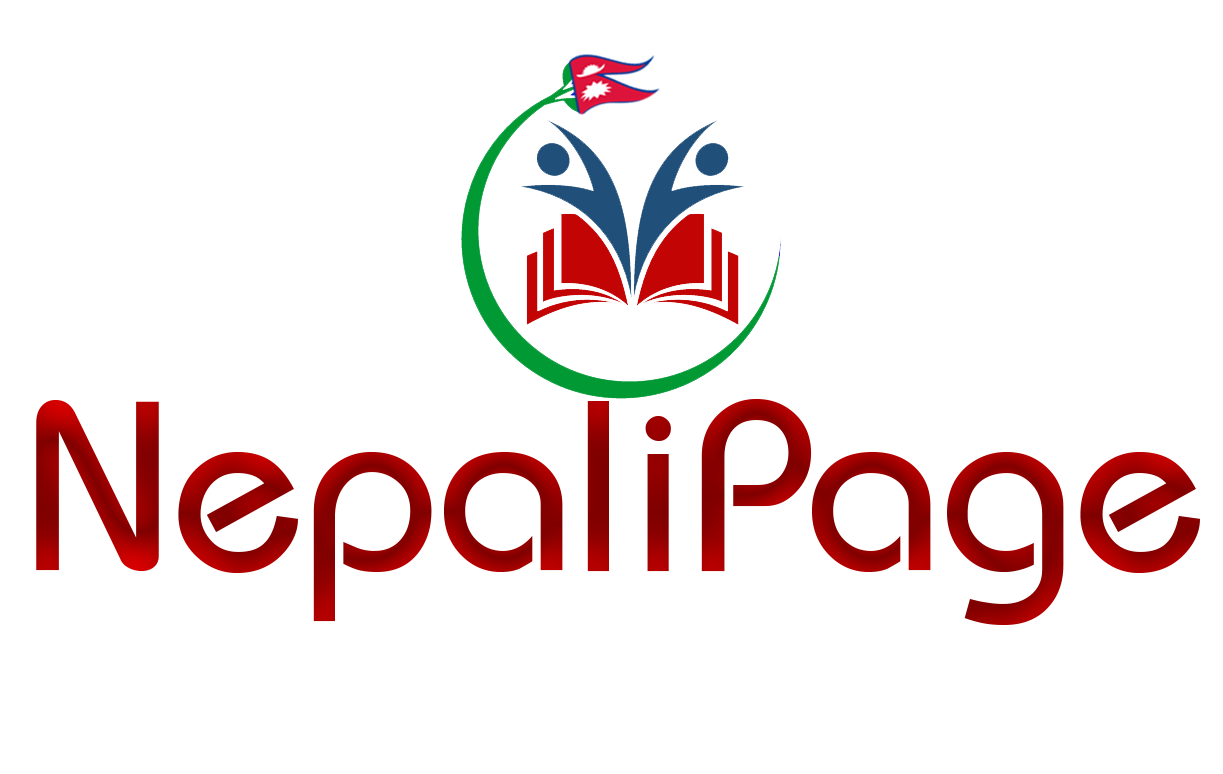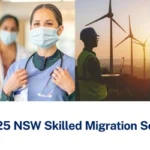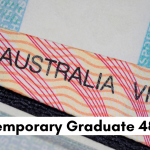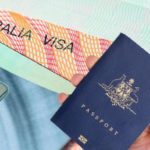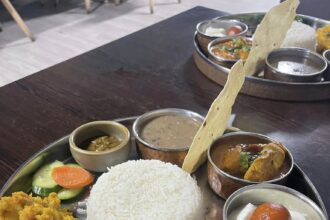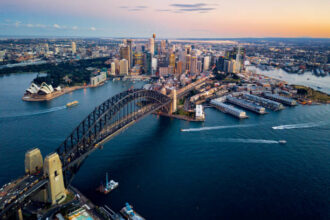As the world races to contain a new COVID-19 variant, Australians in South Africa and a handful of other countries will be quarantined within the last 14 days. The Health Minister and Chief Medical Officer will speak to Australia after 9 am AWST, following a meeting with the Prime Minister after the World Health Organization named B. 1.1.529 ‘Omicron’ is a ‘variant of concern’ overnight.
In a statement, the UN health agency said the variant had several “somewhat concerning” mutations, which originated in South Africa.
It is suspected that this variant has an advantage in growth since it has been detected faster than in previous outbreaks.
Direct flights from South Africa do not arrive in Australia, but repatriation flights have landed at the quarantine facility at Howard Springs.
South Africa has been a convenient stopover for Australians via other countries, as well.
Australia currently does not require quarantining foreign travellers coming into Victoria, NSW, and ACT.
Nonetheless, a series of preventive measures may get implemented later on Saturday, which might involve a period of quarantine or isolation for any Australians who have visited South Africa in the last 14 days.
According to the Prime Minister, Australia will take stronger action.
The government is said to monitor all of these variants, take note what these other countries and take considerations instantly.
A potential outbreak of Omicron in Australia could be handled well due to its high level of vaccination.
In Australia, more than 86 percent of over-16-year-olds are fully vaccinated, while 92 percent have had at least one dose.
Unlike the Delta outbreak and the high cases seen in India, this is a very different situation. As almost every people in Australia are very highly vaccinated.
In an interview on Saturday, Queensland’s deputy chief health officer said it is not yet a good time to panic about the Omicron variant. Still, the AHPPC – the group of federal, state, and territory chief health officers – will meet later today.
The time isn’t right. More information is needed before we act said the Deputy Health Officer.
Minister of Health for New South Wales, Brad Hazzard, said he had been briefed several times on the new variant.
Anyone who has visited South Africa should be “very aware” of their symptoms in the last fortnight.
Also, he said that travellers from other countries have the potential to share the variant.
Reporters were told that Mr. Hazzard is committed to keeping the balance in NSW.
“Having a free economy is essential to our mental health, as well as a variety of other reasons.”
Premier Dominic Perrottet spoke about the “road map” but did not rule out tweaking if necessary.
It may be necessary to impose targeted restrictions from time to time, he said.
“We will ensure that the appropriate steps are taken to keep the community safe in case any changes are needed to make about incoming travellers from overseas who have visited South Africa or related countries.”
There would be some tweaks to the Covid-19 rules, but the Prime Minister did not elaborate.
Anyone who has not yet been vaccinated was urged to do so as soon as possible.
In addition, he advised people who have been fully vaccinated to get booster shots when they are eligible.
Furthermore, he said that we need to ensure the safety of our community as we move forward with the pandemic.
There are currently no cases of the variant confirmed in New South Wales, but Mr Hazzard urged people to stay away from crowds if possible and to wear masks.
“The advice is to be very cautious,” he said.
“Our priority should be to enjoy our life here in NSW, to return to normal but to be careful.”
The United States, several European countries, and Canada closed their borders to southern Africa.
Belgian authorities announced late on Friday night, Australian Central Time, of the first case in Europe.
A preventive steps taken by NSW Government for the B. 1.1.529 ‘Omicron’ variant
With the Australian government’s new national border security measures, the NSW government has taken precautions about quarantine arrangements for overseas arrivals.
As of midnight tonight, the following new measures will be in effect:
• According to Commonwealth standards, all travelers arriving in NSW during the 14 days before their arrival must enter hotel quarantine for 14 days, regardless of whether they have been vaccinated.
• If you have visited any other country after 14 days before arriving in New South Wales, you should proceed straight to your residence or accommodation for 72 hours and isolate yourself from people until further health advice is available.
• Under current regulations, flight crew who have been overseas during the 14 days before their arrival in NSW will need to travel directly to their place of residence or accommodation and isolate themselves for 14, or until their next flight departs.
• People who have already arrived in NSW from any of the nine African countries must get tested immediately and be isolated for 14 days, and call NSW Health on 1800 943 553.
• Hotel quarantine will continue to apply to all unvaccinated travelers from any overseas country.
As soon as it becomes clear that the new variant poses a risk and is transmitting internationally, public health officials will advise quarantine arrangements and isolation requirements.
What is B. 1.1.529 ‘Omicron’ variant in COVID-19?
South Africa was the first country to report the variant to WHO on 24 November 2021. According to reports, there have been three distinct peaks of cases in South Africa, the most recent being predominantly of the Delta variant.
An increase in infections has been observed over the past few weeks, coinciding with the detection of variant B.1.1.529. Condition with B.1.1.529 was first known to have been confirmed on 9 November 2021.
Several mutations are present in this variant, including some that are potentially concerning. It appears that this variant has a higher risk of reinfection compared to other VOCs.
Nearly all provinces in South Africa appear to be experiencing an increase in cases of this variant. The PCR diagnostic test for SARS-CoV-2 continues to detect this variant.
The S gene target failure has been reported by several labs based on PCR results of a widely used PCR test. This test can be used to identify this variant pending sequencing confirmation because one of the three target genes is not detected (called S gene dropout).
As a result of this approach, this variant has been detected at higher rates than previous infection outbreaks, suggesting a potential growth advantage.
TAG-VE continues to evaluate this variant as part of several studies running now. New findings will be communicated by WHO to the public and the Member States.
According to the TAG-VE, based on the evidence that COVID-19 epidemiology has been adversely affected, B.1.1.529 should be designated as a VOC. This variant of Omicron has been classified as a VOC by the WHO.
What are the clauses asked by the WHO to be followed against the B. 1.1.529 ‘Omicron’ variant?
Consequently, the following is asked of countries:
- To better understand the circulating variants of the SARS-CoV-2, enhance surveillance and sequencing efforts.
- Publicly available databases, such as GISAID can be used to store complete genome sequences and metadata.
- WHO should be notified of initial cases or clusters of VOC infection using the IHR mechanism.
- Investigate COVID-19 epidemiology, severity, measures for public health and social well-being, detection methods, immune responses, antibody neutralization, and other relevant characteristics in collaboration with the international community.

